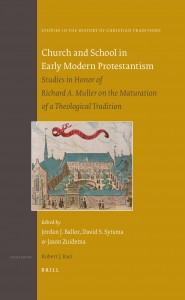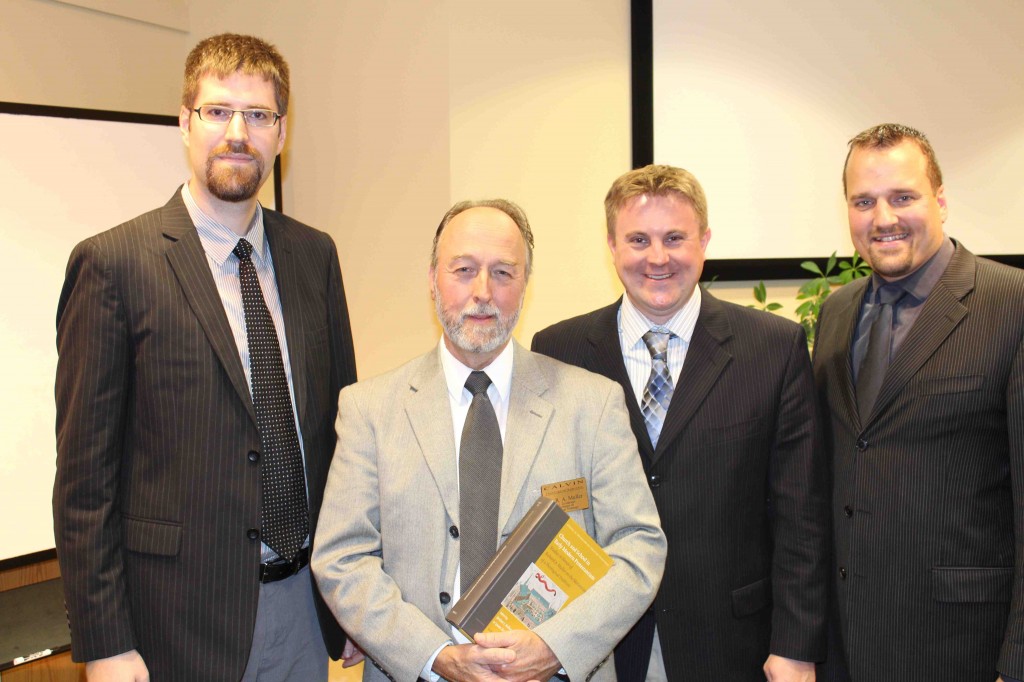
Jay T. Collier
One of the things that Dr. Randy Blacketer’s introduction of Richard Muller last week at the CTS PhD anniversary event made clear was the extent to which Dr. Muller has served as a real mentor to so many of his students. One of his legacies in this regard is the fostering of academic development represented in his encouragement of his students to regularly present their research findings in public lectures and readings of papers at conferences.
To this end, a number of years back Dr. Muller helped to create a graduate studies seminar at Calvin Theological Seminary, focused on the historical theology students. This seminar was relatively informal and yet met with some regularity. Current students would often present their research, and graduates would sometimes return to give an update on their current research. Other times visiting scholars would come and give a special lecture to the CTS community.
With the launch of the Junius Institute this year, these gatherings have been formalized into a Colloquium series, pursued in conjunction with the doctoral program at CTS. The aim of the program remains the same: to provide an outlet for students to present research on their dissertations and to be exposed to research projects in progress from graduates and established scholars.
The inaugural Colloquium lecture was given last month (Friday, September 13, 2013) by Jay T. Collier, a PhD candidate in historical theology at Calvin Theological Seminary. Jay also serves as the director of publishing at Reformation Heritage Books and as the project coordinator for the institute’s Colloquium series. After an introduction by Todd Rester, director of the Junius Institute, Jay presented on the topic, “Troubles after Dort: Augustine, Perseverance, and the Real Story of the ‘Arminian’ Richard Montagu.”
As part of our efforts to disseminate scholarship digitally and foster scholarly discourse, we’re happy to make the audio of this event available below. For more on Montagu, visit his page at PRDL. And check out the Colloquium page for more information about upcoming lectures in the Fall 2013 series.


